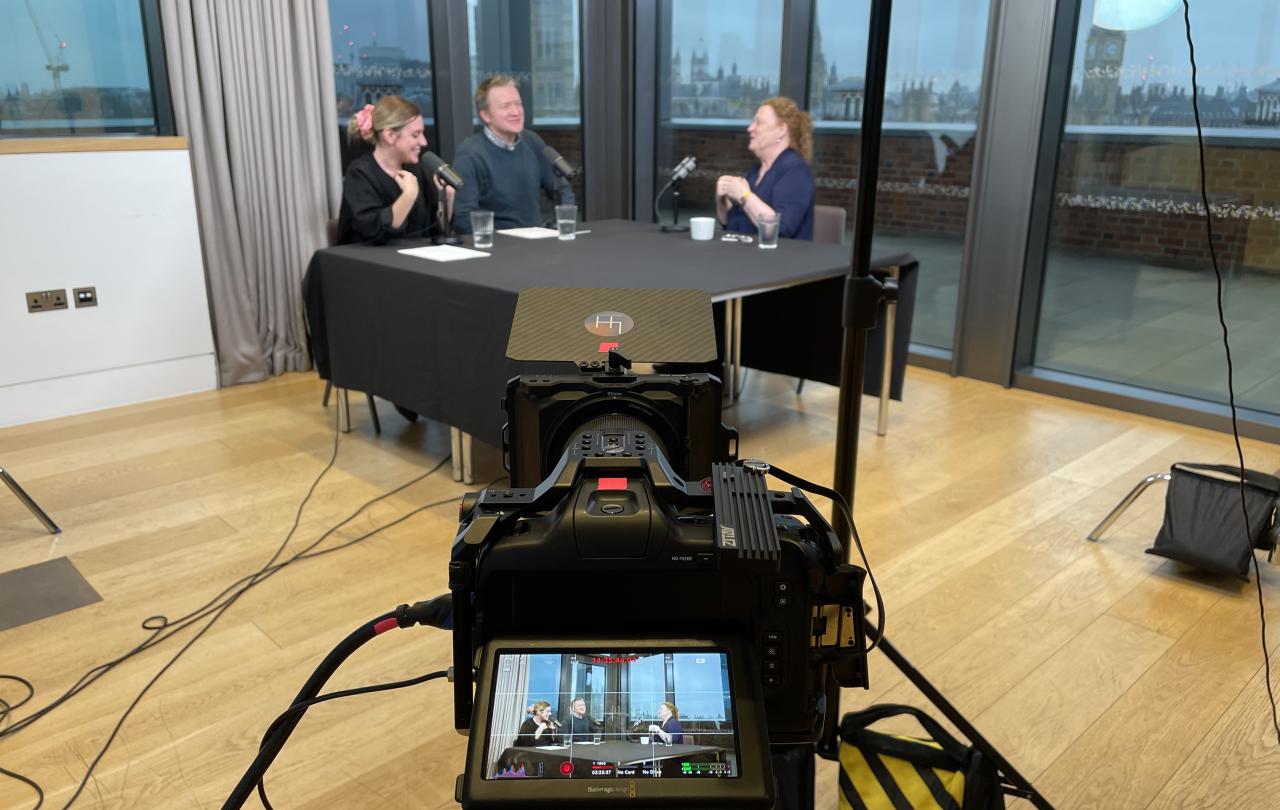
About Re-Enchanting
The Re-Enchanting podcast sees hosts Justin Brierley and Belle Tindall talk with guests about how Christianity can re-enchant culture, politics, the arts, the sciences, history, and so much more.
Despite the increasingly scientific and secular age we live in, many people are still searching for a bigger story to live by. The podcast feature a mix of guests - both with and without faith - and explore how those who have tired of modern materialism are the ones seeking to 're-enchant' the world. This podcast is about tracing their journey and work.
The series so far
Series seven featured Chine McDonald, Alex Evans, Lamorna Ash, Graham Tomlin, Nadim Ednan-Laperouse, Donna Freitas, Ross Douthat, Bear Grylls, and two special episodes recorded in front of live festival audiences at Bradford Literature Festival and Wildfires.
Series six featured Les Isaac, Rupert Shortt, Sue Black, Johnathan Wittenberg, Jo Swinney, Andrew Davison, Kate Flaherty, John Mark Reynolds, Tyler Staton, and Esther Maria Magnis.
Series five featured Alex O'Conner, NT Wright, Krish Kandiah, Talia Dean, Jack Palmer-White, Zoe Clark-Coates, Siku, Sarah Irving-Stonebraker, Claire Gilbert, and Francis Collins.
Series four featured Joshua Luke Smith, Elizabeth Oldfield, Holly Ordway, Michael Ward, Rasool Berry, Luke Bretherton, Ben Sixsmith, Karen Swallow Prior, Iain McGilchrist, and Nick Spencer.
Series three featured Rory Stewart, Helen Lewis, Martin Shaw, Sabina Alkire, David Bennett, Lauren Windle, Milton Jones, Jessica Oyelowo, and Lisa Fields.
Series two featured Esau McCaulley, Kate Bowler, Ros Picard, Suzannah Lipscomb, Glen Scrivener, Chine McDonald, Esme Partridge and Yaroslav Walker, Molly Worthen, and Frank Skinner.
Series one featured Cishal Mangalwadi, Katherine Birbalsingh, Paul Kingsnorth, Marilynne Robinson, Michael Hastings, Louise Perry, Ton Holland, Jennifer Wiseman, Francis Spufford, and Graham Tomlin.
About the hosts and venue
Belle Tindall is a staff writer for Seen & Unseen, the podcast's parent title. Find out more about her and read her articles.
Justin Brierley is a successful broadcaster and pioneering podcaster. Find out more about his work.
Episodes are recorded in the Bancroft Room at the top of Lambeth Palace Library in London. Explore the collection and the building.
Listen to Re-enchanting now
During each series episodes go live every Wednesday.
Listen on Acast
Listen on Apple Podcasts
Listen on Spotify
Listen on Amazon Music
Support Re-enchanting
Since April 2023, our listeners have enjoyed hundred of podcast episodes from Re-enchanting and its sister podcasts. All for free. This is made possible through the generosity of our amazing community of supporters.
If you enjoy Re-enchanting, would you consider making a gift towards our work?
Do so by joining Behind The Seen. Alongside other benefits, you’ll receive an extra fortnightly email from me sharing my reading and reflections on the ideas that are shaping our times.
Graham Tomlin
Editor-in-Chief





